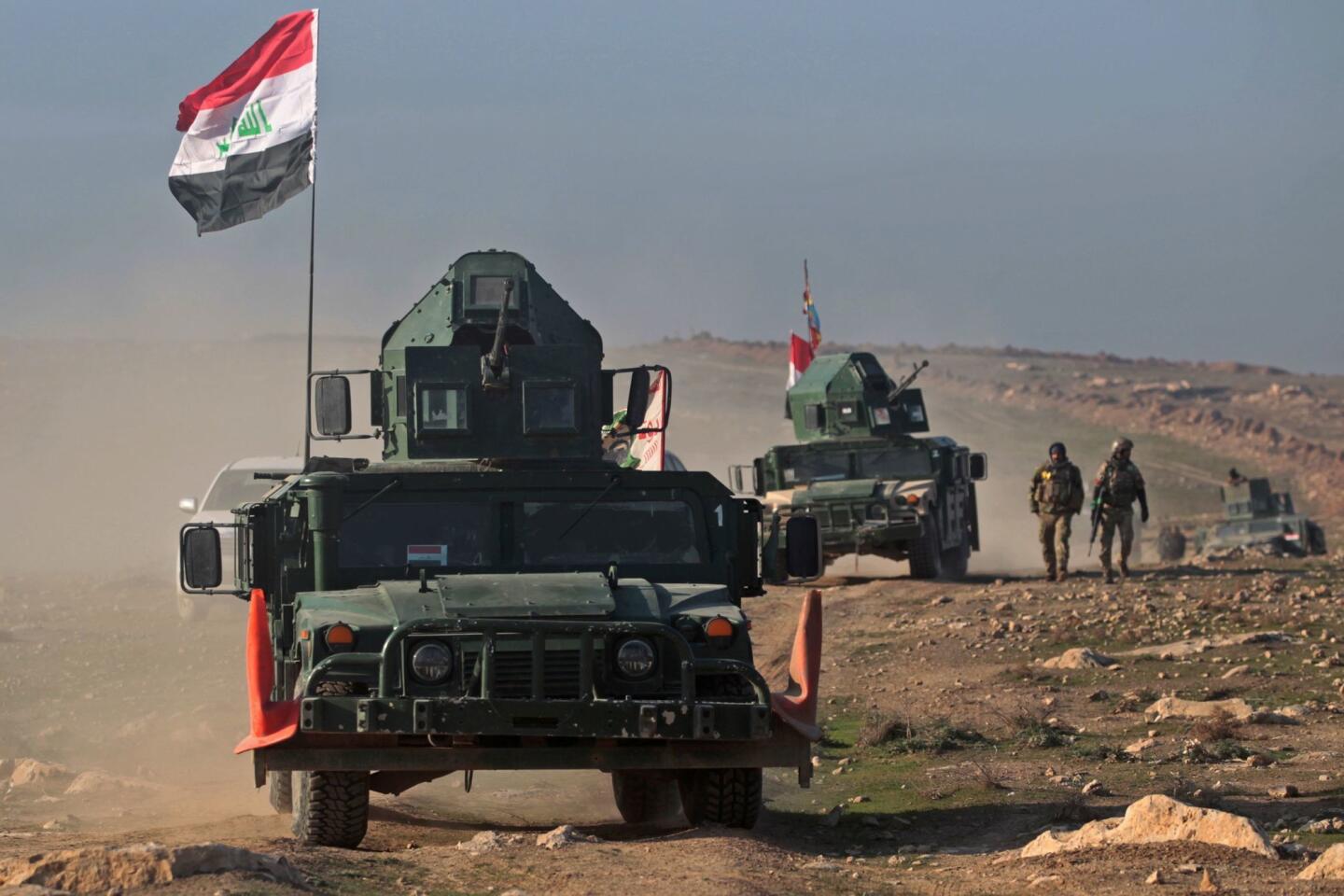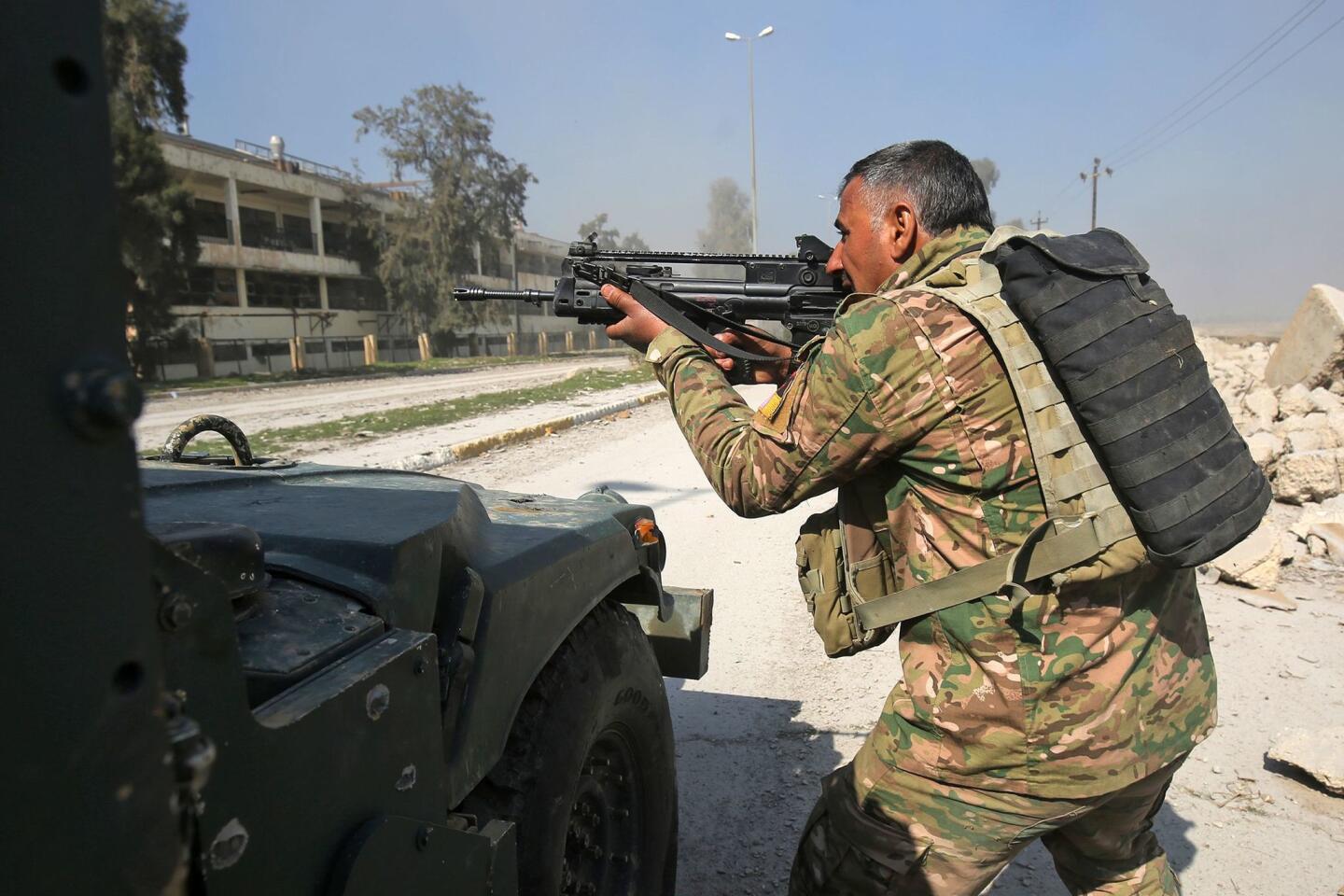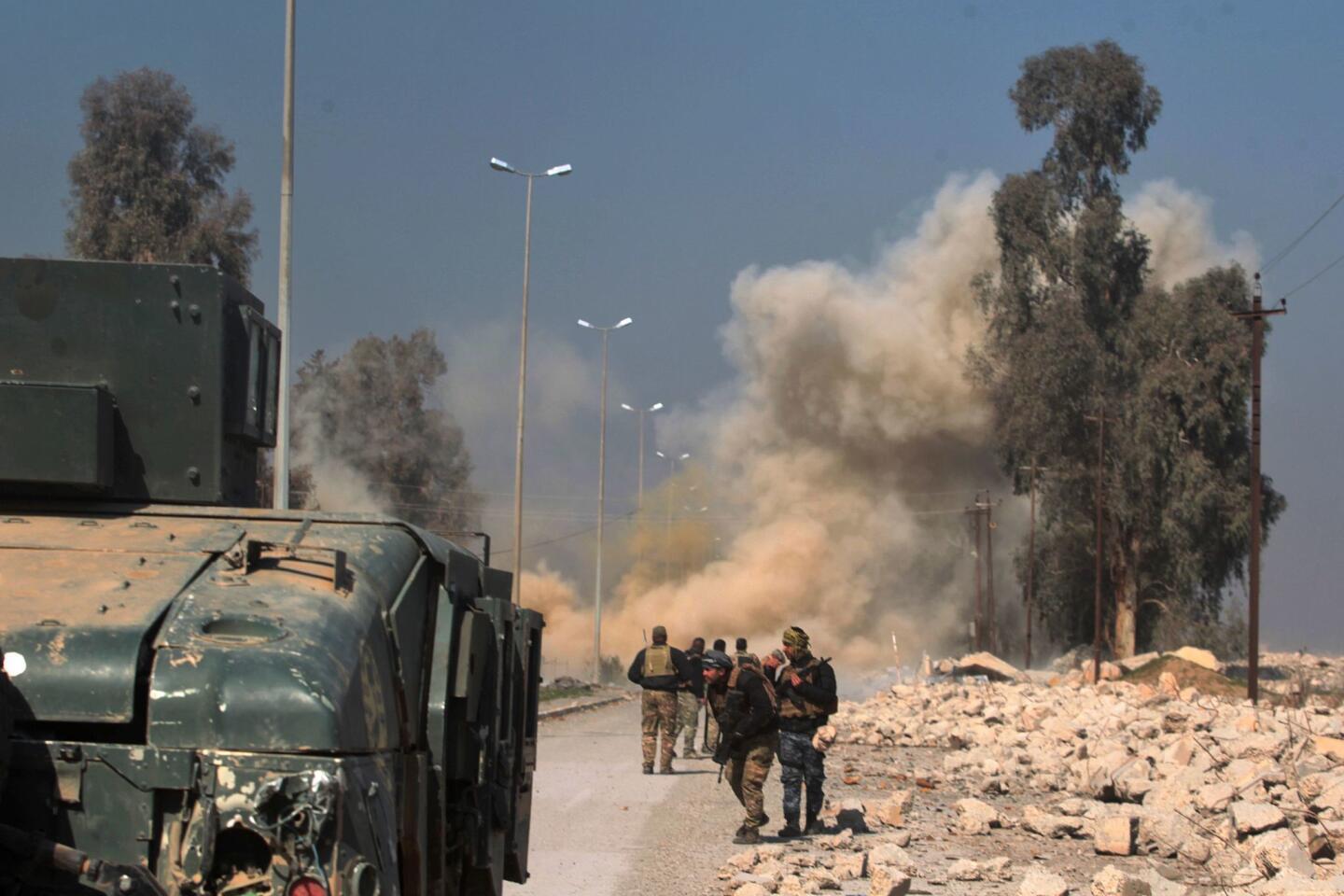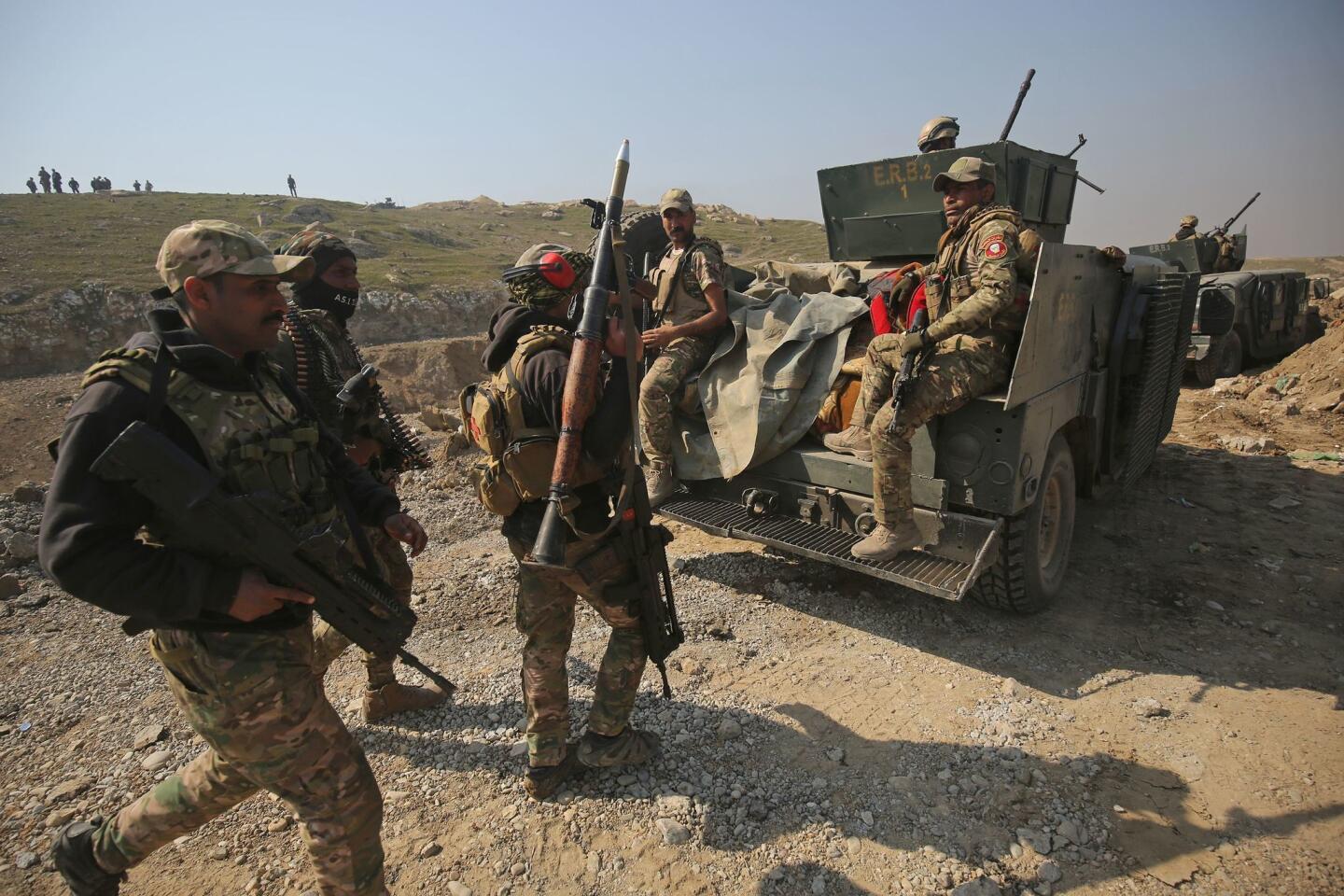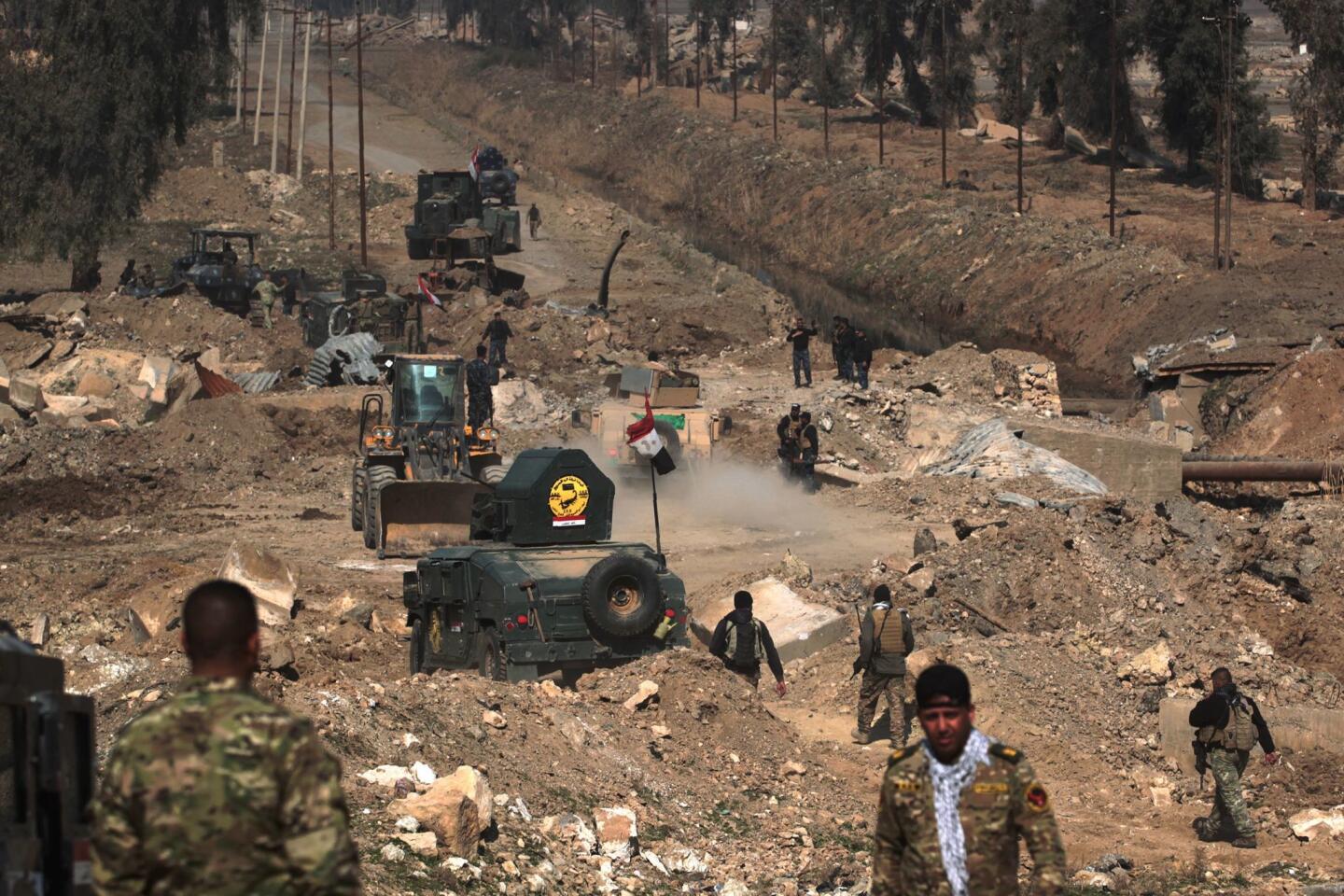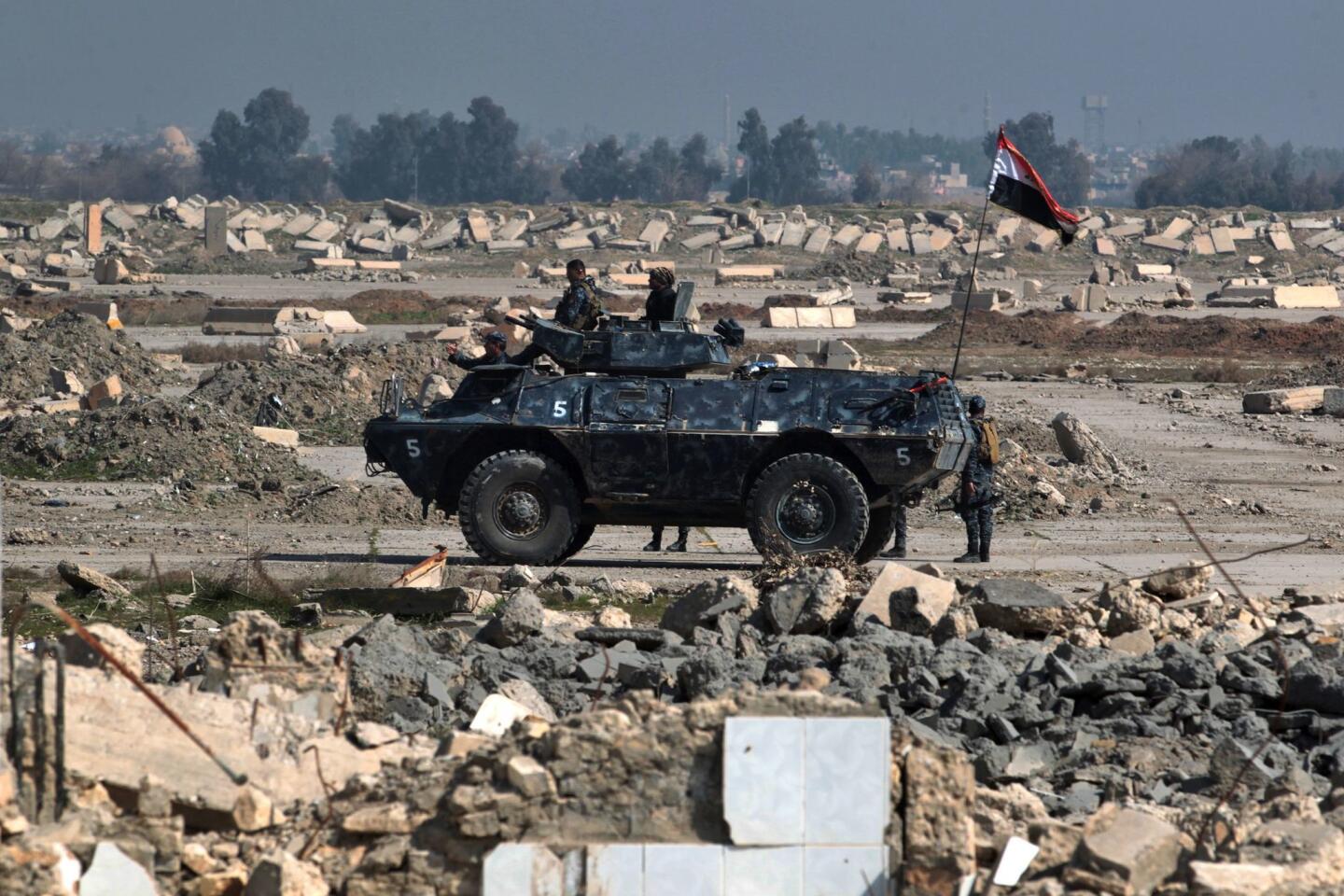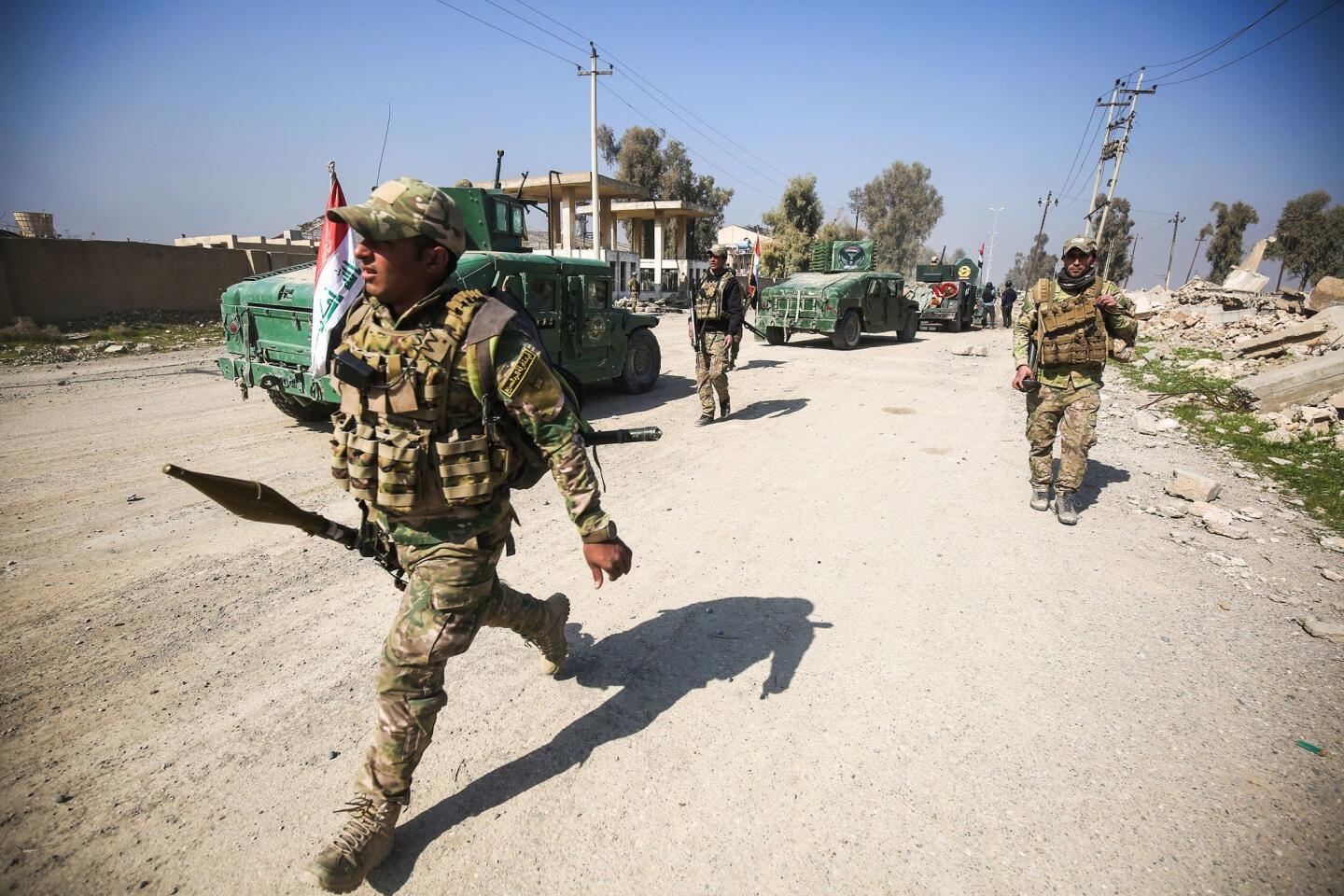U.S.-backed Iraqi forces recapture Mosul airport and military base
- Share via
Reporting from Tal al-Rayan, Iraq — Iraqi troops punched through the defenses of Islamic State extremists to recapture Mosul’s airport on Thursday, establishing a foothold near the city’s western bank.
Units from the federal police and its special forces branch, the Emergency Response Division, executed a pincer attack and struck the airport from several fronts, Lt. Gen. Raed Shaker Jawdat said in a statement Thursday.
Jawdat said more than half of the airport had been taken and that forces were continuing to deal with Islamic state “pockets and ambushes.” He also reportedly said about 200 families were moved to safe areas controlled by the government.
The counter-terrorism service, U.S.-trained elite troops, also joined the fray, sweeping into the village of Tal al-Rayan, on Mosul’s southwestern flank, as well as the Ghazlani military camp. Mosul is bisected by the Tigris River.
The advance, which was backed by a U.S.-led international coalition, was part of a months-long campaign to drive extremists out of Mosul, which has been in Islamic State hands since 2014. Security forces were poised to breach the city’s western half.
Iraqi Prime Minister Haidar Abadi met with the head of U.S. Central Command, Gen. Joseph Votel, to discuss the ongoing battle and “the victories of the heroic [Iraqi forces] in the first days of their mobilization and the international support for Iraq in fighting terror,” according to a statement released by Abadi’s office Thursday.
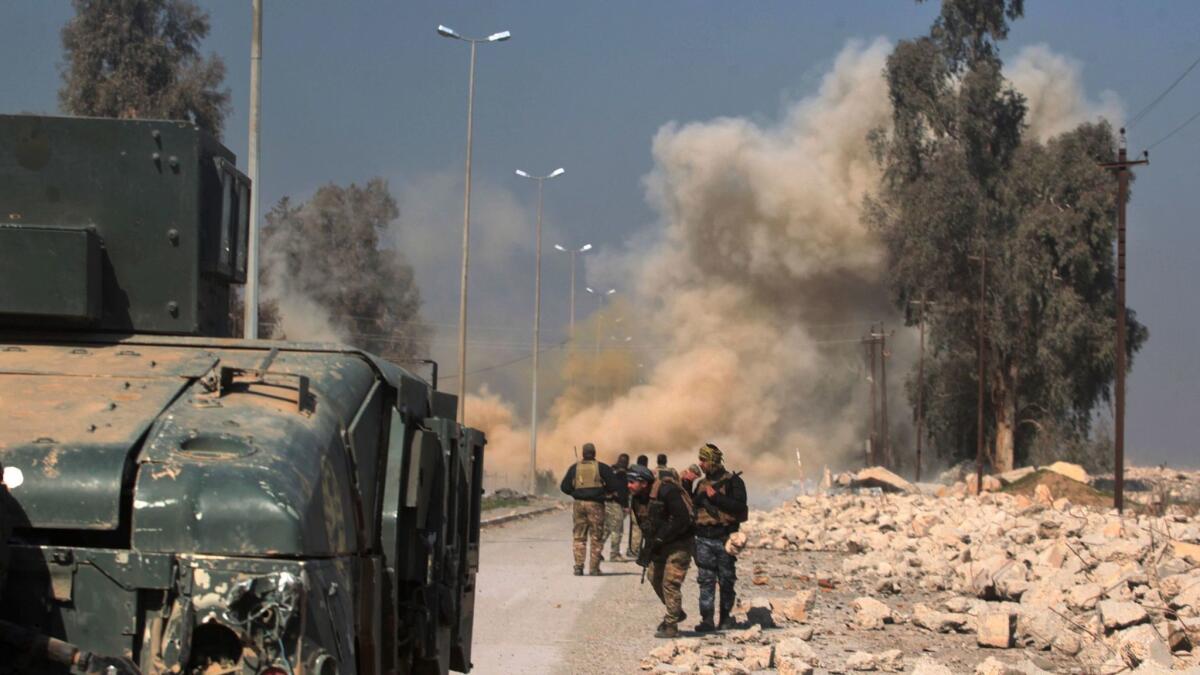
Last month, the government declared it had taken back the eastern side of the city after 100 days of combat. Though smaller in size, the city’s western half is thought to be an even more challenging task because of its narrower streets and more densely populated neighborhoods.
A victory in Mosul would be a significant victory for the government. Once Iraq’s second largest city, its takeover by Islamic State was a humiliating blow that security forces have long wanted to avenge.
Mosul became the de-facto capital of the extremist group, with its leader, Abu Bakr Baghdadi, proclaiming the establishment of a caliphate from a mosque in west Mosul’s Old City. The group took much of the oil-rich desert region between Iraq and Syria.
On Thursday, the elite troops’ black Humvees rolled into Tal al-Rayan in the afternoon, a tank with sewage dripping from its tracks snagging a power line as it headed the column of armored vehicles deeper inside the village.
Coalition aircraft roared overhead, leaving behind still-smoldering remains of buildings as an example of their handiwork, even as the sound of gunfire and the blast of Islamic State mortars echoed through the village’s main thoroughfare.
Nearby, two Humvees and a truck sat incapacitated, their wheels shredded by shrapnel from a car bomb that had slammed into a house and detonated an hour before.
As troops passed, someone frantically waved a white rag knotted around a sapling from behind a metal gate of a house. Behind it were two women, their faces mostly obscured by colorful scarves.
“We’re all right, but we’re afraid,” said one of them nervously. “The children got afraid when the glass broke from the planes, but it’s fine.”
She quickly closed the gate shut.
Other residents, fearful of the impending carnage, had decided to flee. A few came in pickup trucks, while one rode his white horse out of the village. Most had to walk the 3-mile trek through rough hills to a makeshift outpost near the Baghdad-Mosul highway.
Families roamed among the lines of Humvees stretching all the way to the highway. Some corralled herds of sheep, the source of income for many in the village, as soldiers handed out water bottles and juice boxes to dust-covered children.
There was a steady stream of people seeking medical attention. An elderly couple laid down on the ground near a line of stretchers, eating bean stew out of a paper coffee cup with some rice. They both had what appeared to be superficial wounds.
Others had sustained more serious injuries and were struggling to communicate with American medics via Iraqi translators.
Families who arrived were given assistance, with the men, all of them sporting beards and many wearing traditional Afghan clothing, separated off to the side and squatting near a wall. A counter-terrorism service intelligence official, who declined to give his name for security reasons, said the men’s names would be run through a computer to see if they had been listed as Islamic State members.
Bahjat Hassan, a 38-year old construction worker who had left Tel al-Rayan, lauded security forces for treating people well.
“We could barely believe it when we saw the [security forces’] Hummers,” he said.
Beside him, Ghazi Mkhahhal, who described himself as a caretaker for minors, warned that there were many people still trapped in the village. Bombings, he said, meant that some houses had collapsed over their occupants.
“The houses aren’t made out of concrete,” he said. “Many of the walls are of corrugated metal and sponge, so they couldn’t take the blasts.”
Mohammad Meshaal, 23, walked up to the medical post with a fur-lined bundle in his arms. Sticking out of the side were two tiny feet covered in a pair of light-blue stocks. Red patches of blood seeped through.
It was his 2-month old infant daughter, Hajar. As if in a daze, he explained she had been killed when an improvised explosive device had detonated as his family had fled.
He walked away, burying her in a small makeshift berm, his face showing no emotion in the afternoon sun.
Bulos and Ilah are special correspondents.
ALSO
Islamic State fires cluster bombs at Iraqi government forces
Did a Mexican migrant leap to his death at the border minutes after deportation?
UPDATES:
2:40 p.m.: This article has been updated throughout with Times reporting.
This article was originally published at 6:40 a.m.
More to Read
Sign up for Essential California
The most important California stories and recommendations in your inbox every morning.
You may occasionally receive promotional content from the Los Angeles Times.
